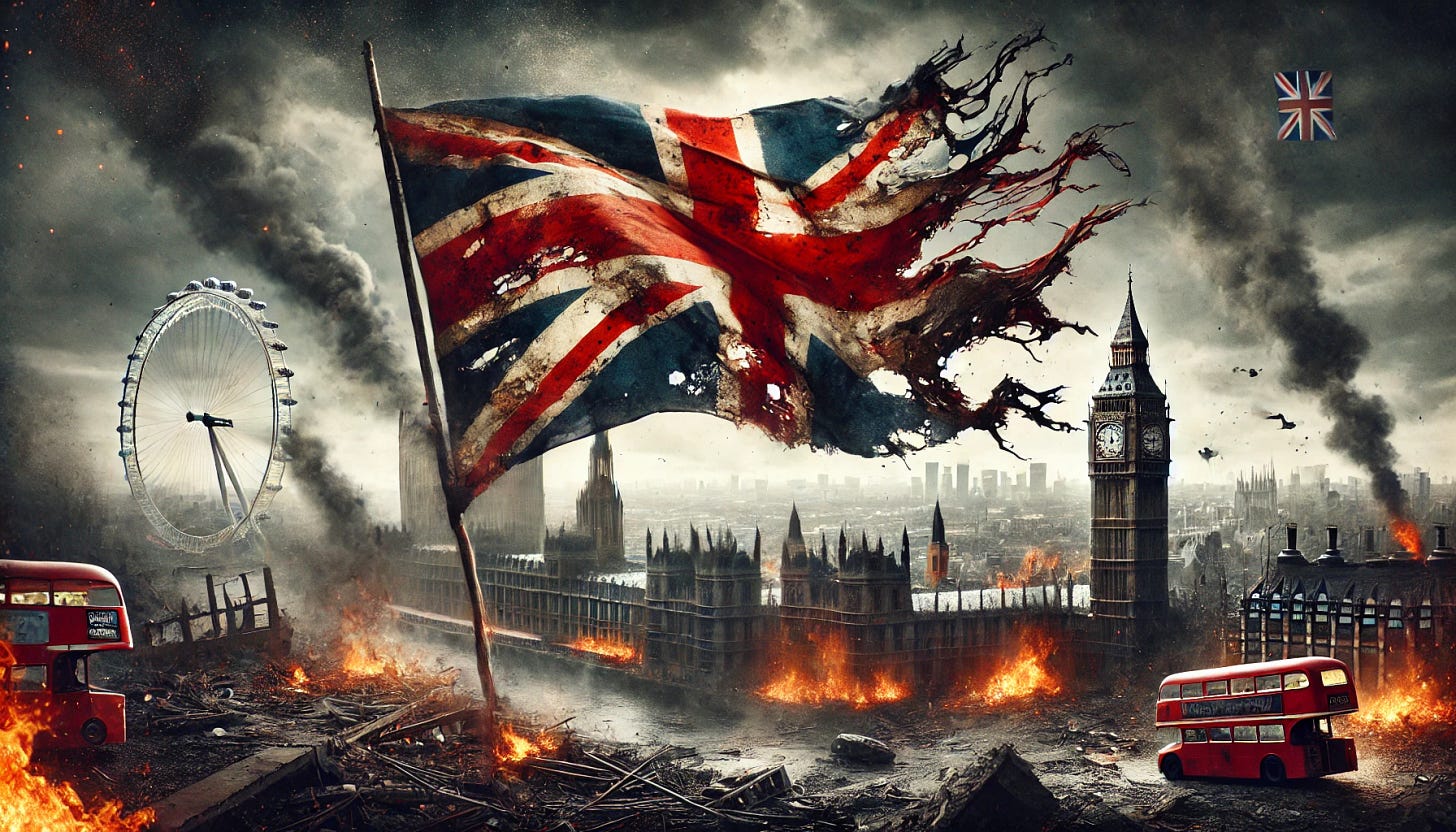Britain is Burning
Immigration, Identity, and the Fraying Social Fabric
The United Kingdom is currently grappling with a wave of violent civil unrest ignited by a horrific stabbing attack carried out by a second-generation immigrant born to Rwandan parents. The attack left three young girls dead, and eight others seriously wounded, sparking nationwide anti-immigration protests and clashes with police.
In response to the som…




